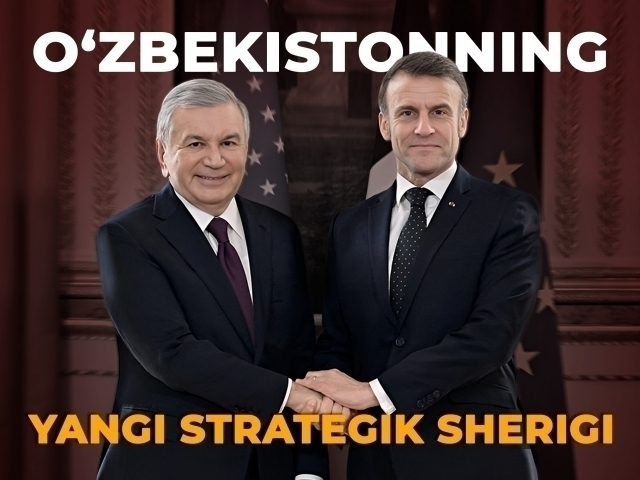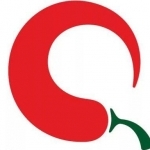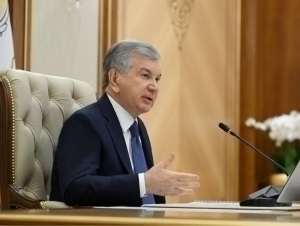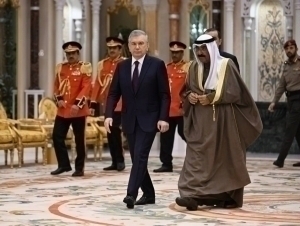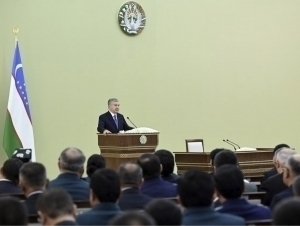Uzbekistan continues to build alliances: France’s turn
Review
−
13 March 2025 5926 7 minutes
Uzbekistan and France, the latter having recently emerged as a key European leader, have now become strategic partners. Since yesterday, media outlets have been actively covering President Shavkat Mirziyoyev’s visit to France, making it a topic of widespread discussion. As the United States shifts its policy regarding the Russia-Ukraine conflict, Emmanuel Macron, who appears to be distancing himself from the European Union, intends to maintain consistent cooperation with Uzbekistan. But what agreements were reached between the two leaders? What has the history of bilateral relations been like? Is France positioning Uzbekistan as its uranium supplier? And where does Uzbekistan stand on the global stage in terms of alliances? This article explores these questions.
Who are Uzbekistan’s allies?
According to the Ministry of Foreign Affairs, Uzbekistan has established diplomatic relations with approximately 160 countries. Currently, Tashkent hosts 46 foreign embassies, three consulates general, 13 honorary consuls, 24 representative offices of international organizations, 26 offices of foreign intergovernmental and governmental organizations, and one trade representative office.
Additionally, Uzbekistan counts four nations—Russia, Kazakhstan, Tajikistan, and Azerbaijan—as allies, alongside more than 20 strategic partners. These partnerships have been formalized with countries such as the United States (2002), Japan (2002), Azerbaijan (2004), Russia (2004), South Korea (2006), India (2011), China (2012), Kazakhstan (2013), Turkmenistan (2017), Turkey (2017), Kyrgyzstan (2017), Tajikistan (2018), Pakistan (2021), Hungary (2022), Italy (2023), Qatar (2025), the UAE (2025), and France (2025), among others.
Is France Uzbekistan’s gateway to Europe?
What is the nature of Uzbekistan-France relations, and how have they evolved? According to Fazliddin Jamolov, a leading researcher at the Institute for Prospective International Studies, diplomatic relations between states range from mere “recognition” to full-fledged alliances, depending on the level of trust and depth of cooperation.
The first level is the recognition of state sovereignty. France officially recognized Uzbekistan’s independence on January 3, 1992, though diplomatic relations are not always established immediately after recognition.
The next step involves formal diplomatic relations, governed by the Vienna Convention on Diplomatic Relations. In the case of France and Uzbekistan, these ties were established on March 1, 1992.
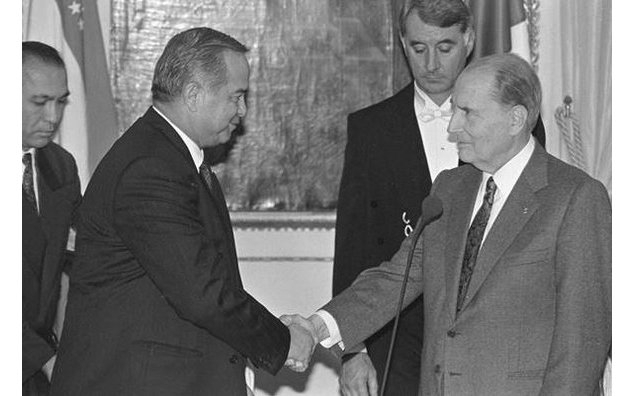
Following this, countries often sign treaties of friendship and cooperation, typically aimed at fostering peaceful relations and strengthening historical ties. Uzbekistan and France signed such a treaty on October 27, 1993.
From there, cooperation can expand into specific sectors or broader multilateral agreements. Notably, during Macron’s 2023 visit to Uzbekistan, the two nations adopted a three-year cooperation program, which included cultural exchanges, a declaration on cultural heritage collaboration, and other agreements.
The next stage in diplomatic relations is often the signing of a strategic partnership agreement, sometimes referred to as a “comprehensive” partnership. This type of cooperation is rooted in shared economic, energy, security, and technological interests. Unlike an alliance, it does not impose rigid commitments and remains adaptable to geopolitical changes.
Allied relations, by contrast, represent the highest level of diplomatic trust, involving formal commitments to mutual protection and support during crises.
According to Jamolov, the strategic partnership between Uzbekistan and France could serve as a gateway for Uzbekistan to deepen its engagement with Europe.
"I am confident that the establishment of a strategic partnership between Uzbekistan and France will significantly strengthen bilateral relations and serve as a ‘bridge’ for Uzbekistan to Europe, fostering stronger ties with other European Union nations. The signing of this agreement, just before the first ‘European Union – Central Asia’ summit, reflects Uzbekistan’s commitment to a multi-vector foreign policy and its efforts to cultivate mutually beneficial relations with the European Union," he stated.
Uzbekistan and France: What will be achieved through the strategic partnership?
On March 12, President Shavkat Mirziyoyev paid a state visit to Paris at the invitation of President Emmanuel Macron. During this visit, a historic decision was made at the Élysée Palace to establish a strategic partnership between the two nations. As a result of the negotiations, which were hosted with great warmth by Macron and carefully prepared by the Uzbek side, a cooperation program on investment and innovation was signed with French companies. This program outlines projects worth 6.5 billion euros to be implemented in Uzbekistan.
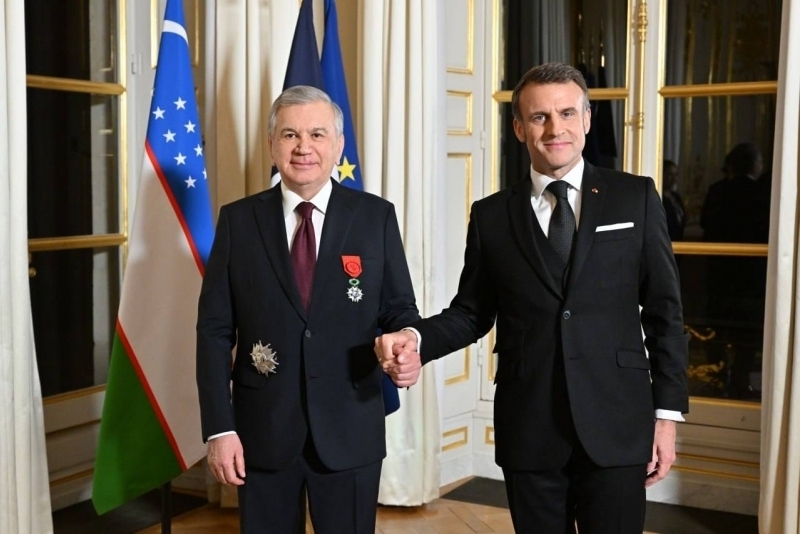
President Macron, often regarded as a skilled politician within the European Union, appeared well-prepared for Mirziyoyev’s official visit. Beyond delivering a speech in Uzbek and promoting the visit through slogans and social media posts, he also conferred upon the Uzbek leader a prestigious national honor. Macron awarded Mirziyoyev the Legion of Honor, an order established by Napoleon.
Notably, Russian President Vladimir Putin, former German Chancellor Angela Merkel, and Ukrainian President Volodymyr Zelensky have previously received this distinction.
What is France’s perspective?
Such gestures are not without strategic intent. As the world’s fourth-largest nuclear power, France has a vested interest in strengthening ties with Uzbekistan, a leading producer and supplier of uranium. According to the French publication A"friquex", France’s nuclear arsenal is a key pillar of its defense strategy. Without nuclear weapons, the country would not wield the same level of influence in global politics.
France has a high demand for uranium, both for civilian energy production and military defense. Since the 1950s, Paris has relied heavily on uranium imports from Niger. However, following the military coup in Niger in July 2023, which ousted French ally President Mohamed Bazoum, France’s access to Nigerien uranium has been significantly restricted.
As a result, countries such as Canada, Australia, Uzbekistan, and Namibia have emerged as new key suppliers. Despite this shift, Orano, a major French uranium mining and processing company, remains heavily reliant on Niger’s uranium reserves.
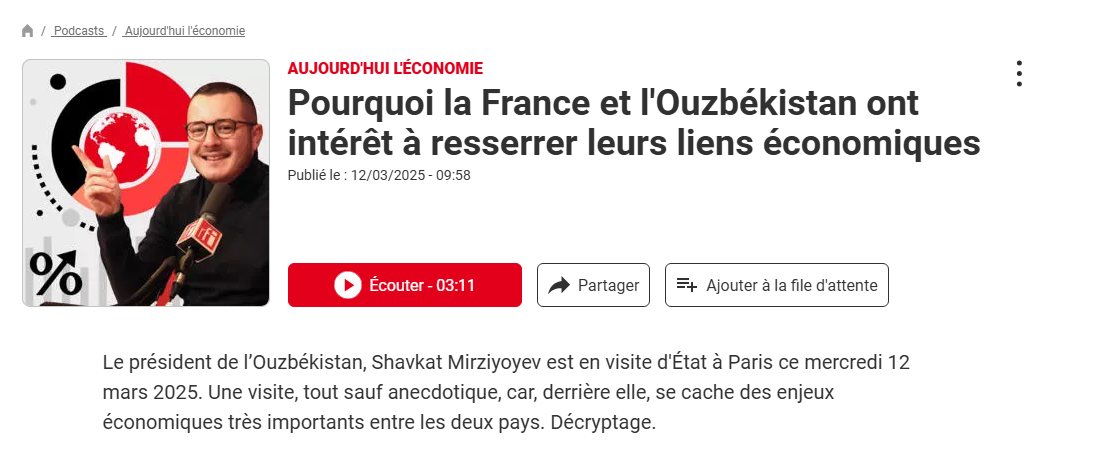
According to an article published by "RFI", France and Uzbekistan are not major trading partners. However, in 2023, France exported goods worth 621 million euros to Uzbekistan—five times more than in 2019. Meanwhile, Uzbekistan exports relatively little to France, with 90% of its shipments consisting of uranium compounds.
For Paris, this is a crucial point. The Élysée Palace has openly acknowledged that one of the primary objectives of Mirziyoyev’s visit was “to strengthen cooperation on rare and strategic metals.” Uranium, in particular, is vital to France’s energy independence, as it fuels the country’s nuclear power plants. Given the uncertainty surrounding Niger’s supply, France is actively seeking alternative sources.
The article also highlights that Uzbekistan, a former Soviet republic, views France as an ideal partner for its modernization efforts. With an annual economic growth rate of around 6% and a rapidly expanding population, Uzbekistan aims to reduce its energy dependence on Russia. France, with its advanced technology and expertise, presents an attractive alternative. French companies could play a significant role in Uzbekistan’s transition to renewable energy, a sector where Uzbekistan seeks to make substantial progress. Currently, around 50 French companies operate in the country.
Furthermore, France is not the only Western nation showing interest in Uzbekistan. Central Asia, as a whole, is gaining geopolitical importance. In September 2023, German Chancellor Olaf Scholz visited the region, demonstrating similar ambitions.
The growing strategic partnership between Uzbekistan and France reflects a mutual convergence of interests. For Uzbekistan, France offers technology, investment, and expertise. For France, Uzbekistan is emerging as a supplier of critical raw materials, including uranium and other rare metals.
This partnership extends beyond economics—it holds major geopolitical implications. While Uzbekistan seeks deeper integration into global markets and aims to secure its energy independence, France is looking to strengthen its presence in Central Asia.
Expanding cooperation with other countries could open new opportunities for Uzbekistan, positioning it as a key player in the international arena.
